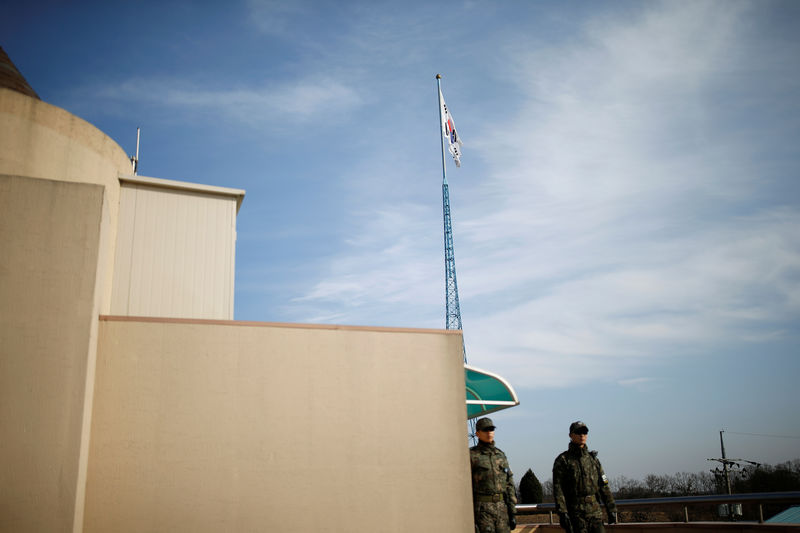By Ju-min Park
TAESUNG FREEDOM VILLAGE, South Korea (Reuters) - South Korean mobile carrier KT Corp said on Thursday it launched 5G services in one of the world's most heavily armed border zones separating the two Koreas.
The next generation technology is available in Taesung Freedom Village - a South Korean community in the 4-km (2.5-mile) wide Demilitarized Zone (DMZ) between North and South Korea that former U.S. President Bill Clinton once called "the scariest place on Earth".
Isolated North Korea and the wealthy, democratic South are still technically at war after the 1950-53 Korean War ended in an armistice, not a peace treaty.
The new technology will give villagers better access to online services, such as yoga classes, and enable them to water crops by remote control, KT said.
"Life here will get easier because villagers are normally escorted by military when they need to work on farms," Chae Uk, a KT official, told reporters during a tour of the village where the company installed two 5G base stations.
The 200 residents - who live only 400 metres (437 yards) from a border guarded by heavily-armed soldiers, barbed wire and anti-tank barricades - cannot leave their homes or work in the fields without a military escort.
South Korea's intelligence service tested the 5G stations to ensure network signals do not cross the border, Chae said.
KT, a former state-run company, also operates military hot lines between the Koreas and landline networks in a jointly-run industrial complex just north of the border.
South Korea is racing to market 5G and expand coverage throughout the country, hoping it will spur breakthroughs in fields such as smart cities and autonomous cars.
The technology can offer 20-times faster data speeds than 4G long-term evolution (LTE) networks and better support for artificial intelligence and virtual reality with low latency.
However, network speeds may be slow inside the village school which is heavily protected against stray bullets, KT said.
Village mayor Kim Dong-gu welcomed the arrival of 5G in their "island on land".

"Now our place with so many restrictions and tensions in reality has a nice virtual life," he told reporters.